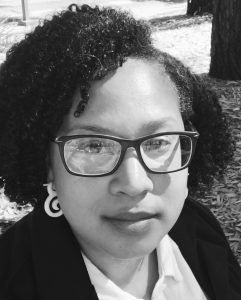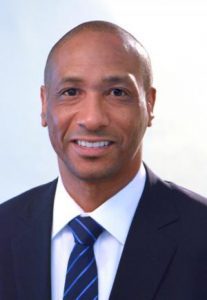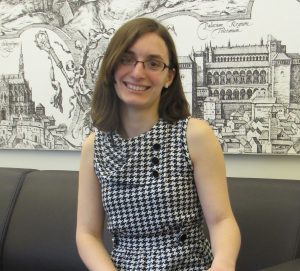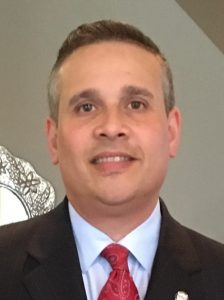Online Forum: Race, Property, and Economic History
Black Perspectives, the blog of the African American Intellectual History Society (AAIHS), is hosting an online forum on Race, Property, and Economic History. The forum begins on Monday, November 27, 2017 and concludes on Friday, December 1, 2017. Organized and moderated by Walter D. Greason (Monmouth University), the forum will feature essays from C.N.E. Corbin (UC Berkeley), Kasturi “Rumu” DasGupta (Georgian Court University), Devin Fergus (University of Missouri), Paige Glotzer (Harvard University), Tomas Gonzalez (Mayor’s Office of Neighborhood Services, Boston), and Zebulon Vance Miletsky (Stony Brook University).
What is erasure? How have Black residents been historically displaced in communities across the United States? How has gentrification shaped the experiences of people of color across the nation? This online forum on race, property, and economic history grapples with these and other related questions. The participants point the way forward in exploring race and economic history in the twenty-first century. They chart the roots of segregated wealth in housing market and explain the ways that persistent economic inequalities have defined American society in ways that worsened in the last decade. Significantly, they also highlight the various ways that African Americans mobilized to defend and expand their economic autonomy and advance more effective systems of economic distribution.
During the week of the online forum, Black Perspectives will publish new blog posts every day at 5:30AM EST. Please follow Black Perspectives (@BlkPerspectives) and AAIHS (@AAIHS) on Twitter; like AAIHS on Facebook; or subscribe to our blog for updates. By subscribing to Black Perspectives, each new post will automatically be delivered to your inbox during the week of the forum.
About the Organizer
 Walter D. Greason is the Dean of the Honors School and an historian in the Department of History and Anthropology at Monmouth University in West Long Branch, New Jersey. His most recent work, a co-edited collection on urban development with Anthony Pratcher II, is titled Planning Future Cities. Greason’s groundbreaking cultural history, Suburban Erasure: How the Suburbs Ended the Civil Rights Movement in New Jersey (Rowman and Littlefield), won the prize for Best Non-Fiction about New Jersey in 2014. He also serves as the Treasurer for the Society for American City and Regional Planning History. A life member of the African American Intellectual History Society, Greason’s #RacialViolenceSyllabus reached thousands of readers after the “Unite the Right” rally in Charlottesville, Virginia, contributing to an ongoing public debate about the role of Confederate public memorials in The Chronicle of Higher Education, The Atlantic, and National Public Radio. He is also the creator of the #Wakandasyllabus. Along with Julian Chambliss, he edits the blog series on Race and Comics for Black Perspectives. Follow him on Twitter @WorldProfessor.
Walter D. Greason is the Dean of the Honors School and an historian in the Department of History and Anthropology at Monmouth University in West Long Branch, New Jersey. His most recent work, a co-edited collection on urban development with Anthony Pratcher II, is titled Planning Future Cities. Greason’s groundbreaking cultural history, Suburban Erasure: How the Suburbs Ended the Civil Rights Movement in New Jersey (Rowman and Littlefield), won the prize for Best Non-Fiction about New Jersey in 2014. He also serves as the Treasurer for the Society for American City and Regional Planning History. A life member of the African American Intellectual History Society, Greason’s #RacialViolenceSyllabus reached thousands of readers after the “Unite the Right” rally in Charlottesville, Virginia, contributing to an ongoing public debate about the role of Confederate public memorials in The Chronicle of Higher Education, The Atlantic, and National Public Radio. He is also the creator of the #Wakandasyllabus. Along with Julian Chambliss, he edits the blog series on Race and Comics for Black Perspectives. Follow him on Twitter @WorldProfessor.
About the Participants
 C.N.E. Corbin is a PhD Candidate at the University of California, Berkeley in the Department of Environmental Science, Policy and Management within the Division of Society & Environment. Corbin’s research examines the relationships between society and nature within the built environment by investigating the concept of the green city within the United States. As an environmentalist and urban political ecologist, her work questions how environmental policies and practices in cities impact low-income communities and communities of color and their access to public green spaces. Corbin’s work focuses on the relationships between green space creation, beautification, climate mitigation, and urban sustainability projects and their influence on gentrification and the displacement of vulnerable communities. The aim of her research is to illuminate how historical processes of urbanization and current urban environmental policies, at scale, are impacting the lived experiences of the most vulnerable residents right now, and what that could mean for future populations living in cities.
C.N.E. Corbin is a PhD Candidate at the University of California, Berkeley in the Department of Environmental Science, Policy and Management within the Division of Society & Environment. Corbin’s research examines the relationships between society and nature within the built environment by investigating the concept of the green city within the United States. As an environmentalist and urban political ecologist, her work questions how environmental policies and practices in cities impact low-income communities and communities of color and their access to public green spaces. Corbin’s work focuses on the relationships between green space creation, beautification, climate mitigation, and urban sustainability projects and their influence on gentrification and the displacement of vulnerable communities. The aim of her research is to illuminate how historical processes of urbanization and current urban environmental policies, at scale, are impacting the lived experiences of the most vulnerable residents right now, and what that could mean for future populations living in cities.
 Kasturi “Rumu” DasGupta is Emeritus Professor of Sociology at Georgian Court University in Lakewood, New Jersey, where she taught for over 25 years. She served ten years as department Chair and was instrumental in starting the University’s Service Learning program. In May 2006, she received the President’s Award for Teaching Excellence. She has researched, published and presented extensively on topics of race, ethnicity and gender, inequality, immigration, capitalism and globalization. Her teaching and scholarship are deeply rooted in the values and principles of ‘public sociology,’ which believes that as a science of society sociology’s role is not just to understand the barriers that stand in the way of realizing social justice, but also in committing to removing them. She has written and advocated for the rights of immigrants, the working poor and the homeless for the last 20 years. At present she is on the Board of Directors of Destiny’s Bridge, a transitional encampment for the homeless in Howell Township in Monmouth County, NJ. She also serves as President and Board member of the advocacy group Immigrant Support, which provides immigrants facing detention and/or deportation with opportunities for due process under the law. She is the author of Introducing Social Stratification: The Causes and Consequences of Inequality (Lynne Rienner Publishers, 2015), which explains the social and economic mechanisms that serve to preserve and even deepen social stratification in the United States.
Kasturi “Rumu” DasGupta is Emeritus Professor of Sociology at Georgian Court University in Lakewood, New Jersey, where she taught for over 25 years. She served ten years as department Chair and was instrumental in starting the University’s Service Learning program. In May 2006, she received the President’s Award for Teaching Excellence. She has researched, published and presented extensively on topics of race, ethnicity and gender, inequality, immigration, capitalism and globalization. Her teaching and scholarship are deeply rooted in the values and principles of ‘public sociology,’ which believes that as a science of society sociology’s role is not just to understand the barriers that stand in the way of realizing social justice, but also in committing to removing them. She has written and advocated for the rights of immigrants, the working poor and the homeless for the last 20 years. At present she is on the Board of Directors of Destiny’s Bridge, a transitional encampment for the homeless in Howell Township in Monmouth County, NJ. She also serves as President and Board member of the advocacy group Immigrant Support, which provides immigrants facing detention and/or deportation with opportunities for due process under the law. She is the author of Introducing Social Stratification: The Causes and Consequences of Inequality (Lynne Rienner Publishers, 2015), which explains the social and economic mechanisms that serve to preserve and even deepen social stratification in the United States.
 Devin Fergus is the Arvarh E. Strickland Distinguished Professor of History and Black Studies at the University of Missouri. His research focuses on political economy, policy, and inequality in modern America. He is the author of Land of the Fee (Oxford University Press, 2018), which explores the hidden costs of rising financial fees at home, school, work, and transportation on wealth and mobility in modern America. His current research project examines white-collar crime and the racial wealth gap. Fergus is guest editor of the special issue Banking without Borders: Culture and Credit in the New Financial World for Kalfou, a journal published by Temple University Press. This special issue examines the impact of four decades of financial deregulation in the US on vulnerable populations, which has increasingly affected the middle class. He has written widely on policy, political economy, and inequality for the New York Times, Washington Post, and the Guardian. Along with Louis Hyman, Bethany Moreton, and Julia Ott, Fergus is also editor of the Columbia Studies in the History of U.S. Capitalism book series published by Columbia University Press. He is a long-time member of the Closing the Racial Wealth Gap Initiative, the nation’s premier group of public and private sector experts dedicated exclusively to addressing the wealth gap and policies that fuel racial economic disparities. Follow him on Twitter @devin_fergus.
Devin Fergus is the Arvarh E. Strickland Distinguished Professor of History and Black Studies at the University of Missouri. His research focuses on political economy, policy, and inequality in modern America. He is the author of Land of the Fee (Oxford University Press, 2018), which explores the hidden costs of rising financial fees at home, school, work, and transportation on wealth and mobility in modern America. His current research project examines white-collar crime and the racial wealth gap. Fergus is guest editor of the special issue Banking without Borders: Culture and Credit in the New Financial World for Kalfou, a journal published by Temple University Press. This special issue examines the impact of four decades of financial deregulation in the US on vulnerable populations, which has increasingly affected the middle class. He has written widely on policy, political economy, and inequality for the New York Times, Washington Post, and the Guardian. Along with Louis Hyman, Bethany Moreton, and Julia Ott, Fergus is also editor of the Columbia Studies in the History of U.S. Capitalism book series published by Columbia University Press. He is a long-time member of the Closing the Racial Wealth Gap Initiative, the nation’s premier group of public and private sector experts dedicated exclusively to addressing the wealth gap and policies that fuel racial economic disparities. Follow him on Twitter @devin_fergus.
 Paige Glotzer is a Prize Fellow in Economics, History, and Politics at Harvard University’s Joint Center for History and Economics where she researches the history of housing segregation in the nineteenth and twentieth centuries. Her first book, entitled Building Suburban Power: The Business of Exclusionary Housing is under contract with Columbia University Press for its Columbia Studies in U.S. Capitalism series. It charts how suburban developers ushered in modern housing segregation with the help of transnational financiers, real estate institutions, and public policymakers. The effects of their efforts continue to be felt today. Portions of her research have been published in the Journal of Urban History and the New School’s Public Seminar blog. She is the recipient of numerous awards, including the K. Austin Kerr Prize from the Business History Conference and Maryland Historical Society’s Lord Baltimore Fellowship. Her scholarship has also been profiled by The American Historical Association and The Baltimore Sun. In addition to conducting research, she has been invited to give talks and tours. Paige received her Ph.D. in History from Johns Hopkins University. Follow her on Twitter @apaigeoutofhist.
Paige Glotzer is a Prize Fellow in Economics, History, and Politics at Harvard University’s Joint Center for History and Economics where she researches the history of housing segregation in the nineteenth and twentieth centuries. Her first book, entitled Building Suburban Power: The Business of Exclusionary Housing is under contract with Columbia University Press for its Columbia Studies in U.S. Capitalism series. It charts how suburban developers ushered in modern housing segregation with the help of transnational financiers, real estate institutions, and public policymakers. The effects of their efforts continue to be felt today. Portions of her research have been published in the Journal of Urban History and the New School’s Public Seminar blog. She is the recipient of numerous awards, including the K. Austin Kerr Prize from the Business History Conference and Maryland Historical Society’s Lord Baltimore Fellowship. Her scholarship has also been profiled by The American Historical Association and The Baltimore Sun. In addition to conducting research, she has been invited to give talks and tours. Paige received her Ph.D. in History from Johns Hopkins University. Follow her on Twitter @apaigeoutofhist.
 Tomas Gonzalez is a native Bostonian and a graduate of Boston College. He is currently the Deputy Director of the Mayor’s Office of Neighborhood Services for the City of Boston. He has studied in the Master of City Planning (MCP) at Boston University’s Metropolitan College. In 2017, he completed a certificate program at the Harvard Kennedy School’s Executive Education in Senior Executives in State and Local Government program. He has dedicated his professional career to running campaigns, organizing, and advocating for social and economic justice. He served as the political director for the Massachusetts Communities Action Network (MCAN), the state’s largest faith-based advocacy and action group and was an executive board member of Raise Up Massachusetts (RUM). He recently co-authored an article published in the Trotter Review.
Tomas Gonzalez is a native Bostonian and a graduate of Boston College. He is currently the Deputy Director of the Mayor’s Office of Neighborhood Services for the City of Boston. He has studied in the Master of City Planning (MCP) at Boston University’s Metropolitan College. In 2017, he completed a certificate program at the Harvard Kennedy School’s Executive Education in Senior Executives in State and Local Government program. He has dedicated his professional career to running campaigns, organizing, and advocating for social and economic justice. He served as the political director for the Massachusetts Communities Action Network (MCAN), the state’s largest faith-based advocacy and action group and was an executive board member of Raise Up Massachusetts (RUM). He recently co-authored an article published in the Trotter Review.
 Zebulon Vance Miletsky is an Assistant Professor of Africana Studies and History at Stony Brook University. He specializes in African American History, History of Miscegenation, Interracial Marriage, Urban History, African Americans in Boston, and Mixed Race and Biracial Identity. Originally from Boston, Miletsky received his Ph.D. in African-American Studies with a concentration in African American History from the University of Massachusetts-Amherst. Having previously served as an Assistant Professor in the Black Studies Department at the University of Nebraska at Omaha, he served as a Post-Doctoral Fellow in African-American Studies in the History Department at Case Western Reserve University in 2010-2011. His teaching and research interests include the Northern Civil Rights Movement, the long Civil Rights struggle, Black Power, the Afro-Latin diaspora and Hip-Hop. In addition, Miletsky is interested in the Boston School Desegregation Crisis and the parent-led Civil Rights Movement in Boston. His articles have appeared in the Trotter Review, The Historical Journal of Massachusetts and the Journal of History. He is currently completing a book manuscript on the Civil Rights Movement in Boston. Follow him on Twitter @ZebulonMiletsky.
Zebulon Vance Miletsky is an Assistant Professor of Africana Studies and History at Stony Brook University. He specializes in African American History, History of Miscegenation, Interracial Marriage, Urban History, African Americans in Boston, and Mixed Race and Biracial Identity. Originally from Boston, Miletsky received his Ph.D. in African-American Studies with a concentration in African American History from the University of Massachusetts-Amherst. Having previously served as an Assistant Professor in the Black Studies Department at the University of Nebraska at Omaha, he served as a Post-Doctoral Fellow in African-American Studies in the History Department at Case Western Reserve University in 2010-2011. His teaching and research interests include the Northern Civil Rights Movement, the long Civil Rights struggle, Black Power, the Afro-Latin diaspora and Hip-Hop. In addition, Miletsky is interested in the Boston School Desegregation Crisis and the parent-led Civil Rights Movement in Boston. His articles have appeared in the Trotter Review, The Historical Journal of Massachusetts and the Journal of History. He is currently completing a book manuscript on the Civil Rights Movement in Boston. Follow him on Twitter @ZebulonMiletsky.

